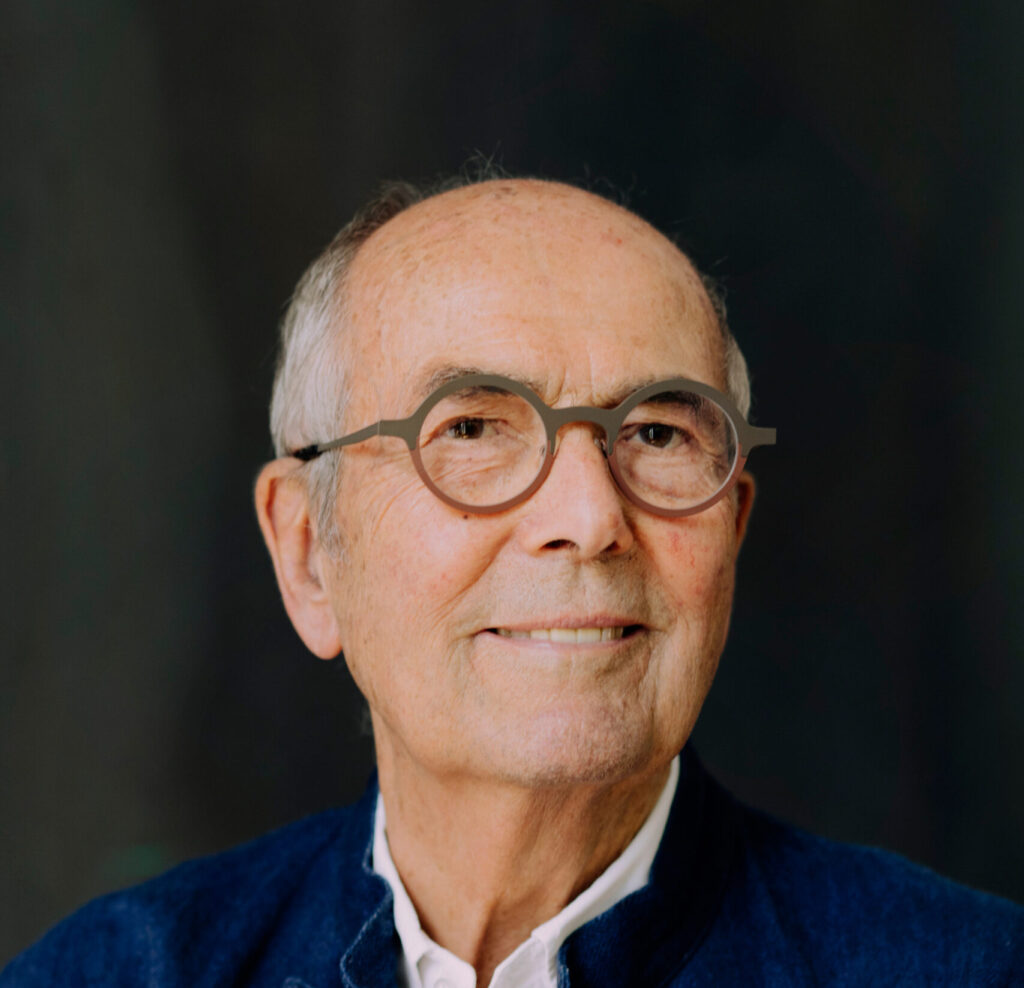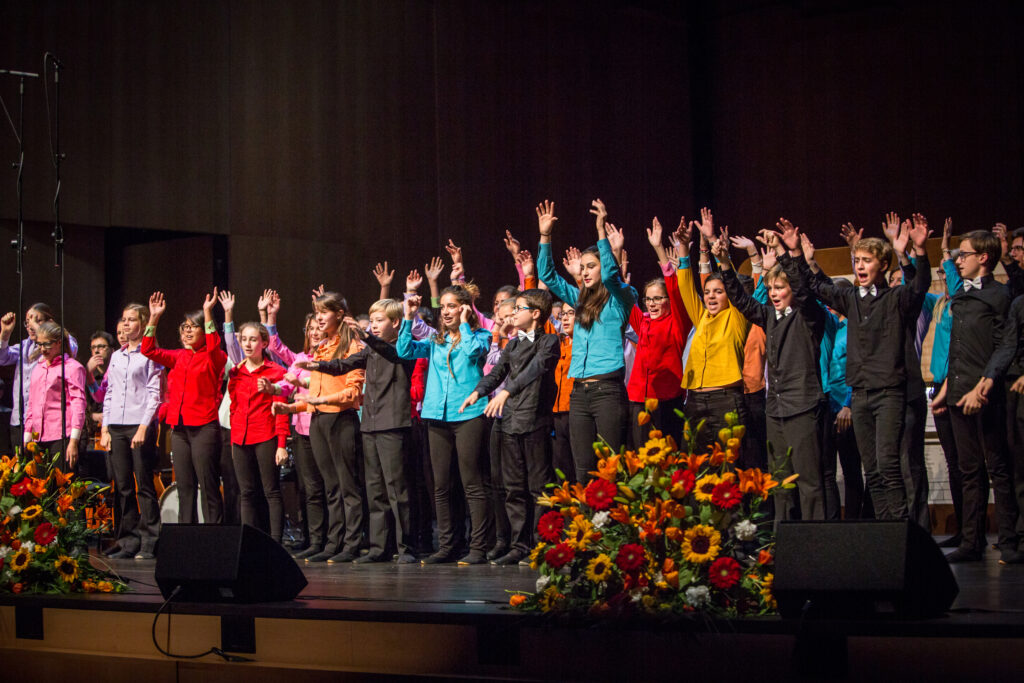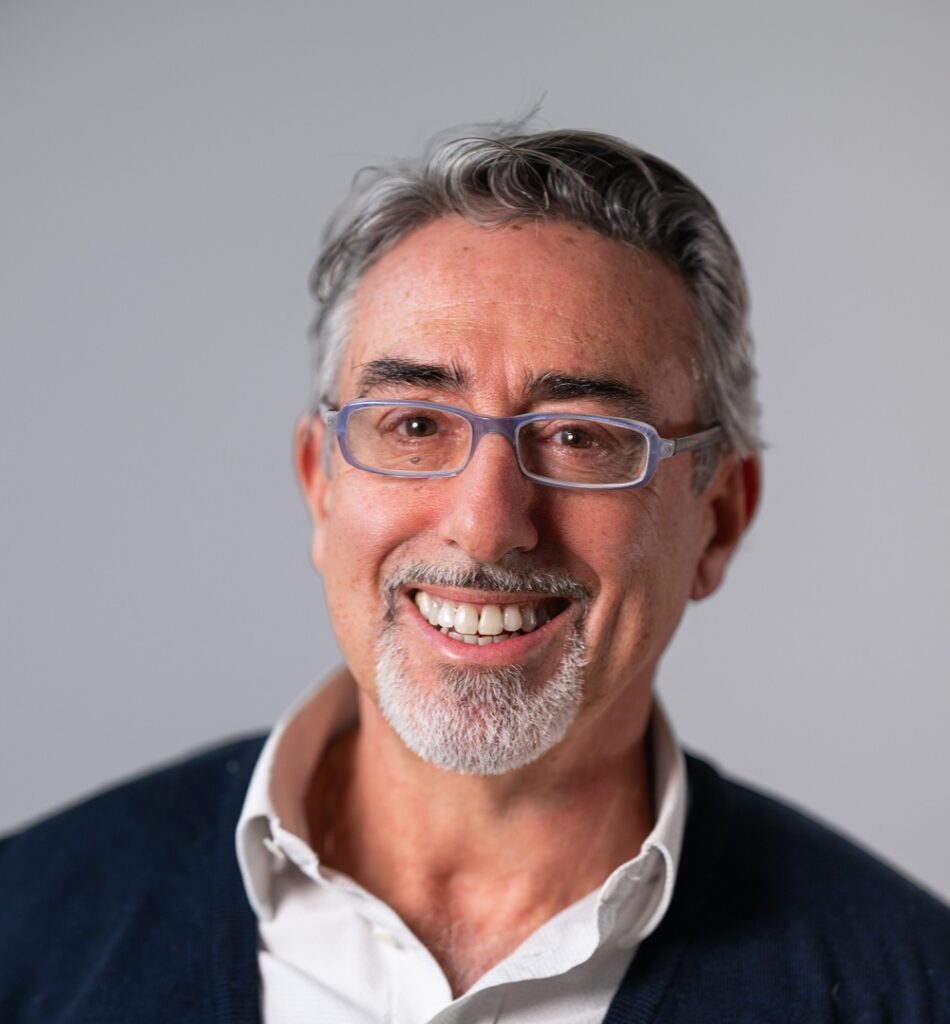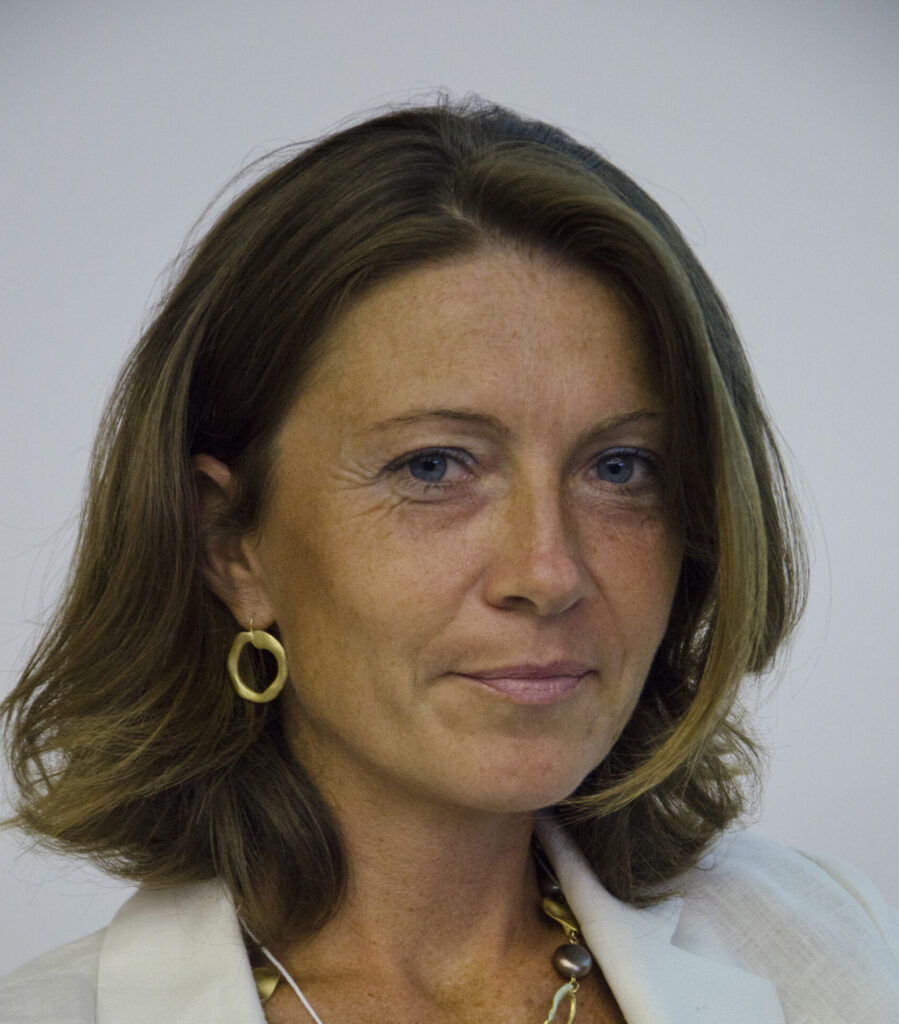Philipp Siedentopf, you have been working in philanthropy for a few years now, but you have a relationship with your work that is more than a job, it is a passion. Why?
«That’s right. I was raised with a deep conviction and belief that it is important to care for others. To help where we can. I have the feeling that society today is becoming increasingly selfish. We are perhaps heading towards a situation where people walk around with blinders on and mainly care about their own wealth, self-being, advancement, and about status symbols. Yet, those who need our help the most fall through the cracks. Everyone can make a difference. It is not about radically changing one’s life but looking left and right to see how one can help others. Some can give their time, their know-how or even provide services. And finally, some others can help with donations. The old principle applies: if many do something we get a lot done».
When did you first come into contact with philanthropy and what role did your family play in your desire to devote yourself to this profession?
«As mentioned, my family was very influential in my choice of career. As children, my brother and I were told that giving is better than receiving. My parents have both always been involved with charitable organizations and got us involved early. So that at the age of 11, I was already standing on soccer fields in my hometown and -under supervision, of course- sticking band-aids on the legs of amateur soccer players as part of a first-aid service. Not only has giving and caring for others modeled my life path for me, but my family history as had a similar impact as well. During and after World War II, my grandparents’ generation, both on my father’s and mother’s sides, were forced to leave their homeland in what is today Poland. They fled to West Germany. The loss of your homeland, your roots and almost all of your possessions was still omnipresent in my youth. A trauma that is deeply anchored and has lasted for decades. This is also the reason why it has always been a dream of mine to work for, or at least with an organization such as the UN Refugee Agency (UNHCR)».
The UHNCR is an international Organization. What gave rise to the need and the decision to establish a foundation under Swiss law?
«Switzerland for UNHCR is UNHCR’s National Partner for Switzerland. Established as a foundation to support the work of the UN Refugee Agency The decision to create this foundation under Swiss law was made to provide a legal and administrative framework for raising awareness and critical funds in Switzerland and Liechtenstein.
The need to establish Switzerland for UNHCR arose from the increasing global number of forcibly displaced people worldwide and the growing demand for humanitarian assistance and protection of refugees worldwide. The UNHCR works tirelessly to provide shelter, protection, and assistance to millions of refugees and displaced persons around the world.
In the last 10 years we have seen the number of people forced to flee almost double to the staggering figure of over 104 million today. More than 73% of all refugees are hosted in neighboring countries, and these are often countries that are already facing challenges of their own».
When was the Foundation Switzerland for UNHCR established? What are its aims and where is it based?
«Switzerland for UNHCR was founded in March 2020. One day before the lockdown caused by the pandemic. A rough start, but we managed to achieve quite a bit already, despite the difficult times. The goal of the Foundation is to raise awareness among the Swiss and Liechtenstein populations about the concerns of refugees, forcibly displaced persons, and stateless persons around the world. As UNHCR’s needs to carry out its missions, increase exponentially the Foundation’s mission also includes the vital mobilization of funds from the private sector. The Foundation’s headquarters are located in Geneva, close to UNHCR Headquarters, and most of our colleagues are based there. However, over the last few years, we have also established offices in the German and Italian speaking parts of Switzerland. These colleagues, of which I am one, are responsible for their respective regions and are available to all interested parties, be they potential supporters, foundations, or companies. The result is that we are present in the different Swiss regions, and this enables us to respond to cultural differences and to quickly respond to any enquiries, in person, should it be necessary. In Ticino, for example, we have our colleague Leandro Sugameli, who can look back on years of experience and is always available as a reliable contact (see box)».
Who sits on the Board of Trustees and how many staff do you have?
«Despite being founded only three years ago, Switzerland for UNHCR is witnessing a fast-growing team. We currently have around 20 colleagues and this could be explained by the incredible support shown for the refugee cause in Switzerland, crisis like in Ukraine forced us to quickly organize ourselves in a way that could allow an efficient response to the overwhelming rush of solidarity that we witnessed in the country. In the Private Sector Partnership Team, we are divided by language region and experts take care of the respective sectors. Ticino, for example, is looked after by my colleague, Executive Delegate – Strategic Partnerships Leandro Sugameli (see box).
Our board of directors consists of 7 members. People from many different professions and regions of Switzerland are represented. They all do their best to support us in our daily work and all contribute enormously to the success of Switzerland for UNHCR».
How does the foundation describe its activities?
«The primary objective of Switzerland for UNHCR is to raise awareness for the refugee cause and around UNHCR’s mandate and mobilize critical resources to provide critical humanitarian aid and protection to forcibly displaced populations. By generating financial support from the private sector, individual donors, foundations, and other organizations, the foundation seeks to complement and enhance the efforts of UNHCR in addressing the needs of refugees. The same applies to our awareness-raising efforts. We complement the UNHCR’s local and global efforts, each time making sure that we adapt a global message to a local audience».
What projects is the Foundation currently pursuing?
«Switzerland for UNHCR supports all programs that UNHCR is running around the world. UNHCR works to protect and support refugees, internally displaced persons (IDPs), stateless individuals, and other forcibly displaced populations around the world. Their projects encompass several key areas:
Emergency Response: UNHCR provides life-saving assistance during humanitarian crises, including the provision of shelter, clean water, healthcare, and protection services to those affected by conflicts, natural disasters, or other emergencies.
Refugee Protection: UNHCR strives to ensure the safety, well-being, and rights of refugees. They work to advocate for legal frameworks and policies that protect refugees and ensure their access to basic rights, such as education, healthcare, and employment.
Shelter and Settlement: UNHCR supports the provision of temporary and long-term shelter solutions for displaced populations. They work to establish and improve refugee camps, settlements, and host communities, ensuring adequate living conditions and promoting self-reliance.
Education: UNHCR aims to ensure that displaced children have access to quality education. They collaborate with governments, NGOs, and other partners to establish schools, train teachers, provide learning materials, and promote education for both children and adults.
Health and Nutrition: UNHCR prioritizes the health and well-being of displaced populations. They support healthcare systems, provide medical assistance, vaccinations, and reproductive health services. They also address malnutrition and other health challenges in refugee populations.
Solutions and Resettlement: UNHCR works towards finding durable solutions for refugees, which include voluntary repatriation, local integration, and resettlement to third countries. They engage in negotiations, advocacy, and coordination with governments and other stakeholders to secure safe and dignified options for refugees».
How does the foundation get funded?
«In 2022, for every franc donated to the Switzerland for UNHCR Foundation, about 82 cents will go to UNHCR programs supporting uprooted people. The remaining 18 cents will be used to cover our investment and operating costs. Each year we are committed to reducing our costs as much as possible to maximize our impact on the ground».
When we think of the enormous challenges that the UHNCR faces, it may seem that contributions from other, perhaps smaller foundations are marginal. Is this the case or is it a misperception?
«Not at all, the contributions from other, smaller foundations to Switzerland for UNHCR can indeed play a significant role in addressing the challenges the organization faces. While UNHCR is a large international agency tasked with providing protection and assistance to refugees and displaced persons worldwide, it relies on a range of funding sources to fulfill its mandate. Smaller but more targeted funding may help us better target a particular challenge that the organization is facing. In addition, a contribution that might be seen as smaller at first, may sometimes create a dynamic movement that make the total number of contributions grow in favor of a specific need.
The UNHCR’s budget is primarily funded through voluntary contributions from governments, intergovernmental organizations, and non-governmental organizations (NGOs). While major donor countries contribute a significant portion of the UNHCR’s budget, smaller foundations and organizations also contribute to its funding. These contributions, though comparatively smaller in scale, can make a huge difference in complementing the overall funding pool.
Smaller foundations often have a more targeted and flexible approach to their funding, allowing them to support specific programs, initiatives, or regions that align with their goals and priorities. These contributions can be instrumental in supporting innovative projects, piloting new approaches, or providing essential resources to address the unique needs of displaced populations. Additionally, smaller foundations can act as catalysts for raising awareness and mobilizing resources, encouraging others to contribute as well.
Furthermore, UNHCR recognizes the importance of diversifying its funding sources to ensure sustainability and flexibility in its operations. By fostering partnerships with a broad range of donors, including smaller foundations, the organization can reduce its dependence on a few major contributors and maintain a more balanced funding portfolio. This approach strengthens the overall resilience of the UNHCR‘s funding and allows it to respond to emergencies, support long-term solutions, and sustain essential programs and services.
In summary, while the UNHCR faces enormous challenges, contributions from smaller foundations should not be perceived as marginal. Their contributions, though relatively smaller in scale, can have a meaningful impact in addressing the needs of refugees and displaced persons. By leveraging diverse funding sources, the UNHCR can enhance its ability to provide critical support, advocate for the rights of refugees, and work towards durable solutions for displaced populations worldwide».
How is the foundation integrated into the networks of the Swiss foundations and how does it cooperate with them?
«We are a member of various associations of foundations in Switzerland and maintain a lively exchange with many foundations. An effective cooperation between the foundations is elementary to use synergies and to overcome hurdles together. Switzerland is a country that is home to many foundations, as they find good conditions for their work here. Nevertheless, foundations should work together to ensure that these conditions are preserved so that the important work of foundations in Switzerland and beyond can continue».
What contribution can a foundation like yours make to the discussion on the role and function of foundations in Switzerland?
«I think Switzerland for UNHCR, even if still very young, responds to a specific philanthropic need that was not fully covered in the country. It can build a bridge for many foundations in Switzerland as I am firm believer that foundations are stronger when working together. Many foundations want to address the issue of refugees, stateless persons, or forcibly displaced persons. Some have been doing so for years. UNHCR heads the UN Cluster for Protection and, for example, coordinates all aid and NGOs on the ground in the event of a disaster. We work with a large number of organizations – small or large- on the ground. to make aid more effective and efficient and to deploy financial resources locally. Many foundations in Switzerland are not set up in a way that they can directly reach the field. And the opposite also applies: some foundations are only field-oriented and lack of a more strategic and global approach. t Unfortunately, as a result, we see time and time again that aid does not reach where it is needed most. Effective coordination is essential in such disaster situations. Switzerland for UNHCR can become this bridge, e ensuring that the funds made available to us reach where they are most urgently needed».
What is your personal vision of philanthropy for UHNCR in the coming years?
«As mentioned at the beginning, in my personal view, in the last decades, our society has increasingly developed into a self-centered system. In the future, I fear, we will have to reckon with even more increasing numbers of displaced persons. Armed conflicts are on the rise, and let’s not even mention climate change, identified as a major cause for and increased number of conflicts in the future. This also means that we will need to find new and alternative ways to raise funds for the refugee cause, and this will mean involving the private sector more and more. Thus, the part that the private sector can play is becoming more and more important to address the problems of refugees and forcibly displaced people, which in my opinion will be the most urgent problem of our society in the future, next to global warming, but the two are intertwined.
However, we are seeing signs, and I hope that this will continue, that more people want to help, and share their prosperity with others. The good feeling of being able to give something back and enable people who have lost everything to live in dignity is driving more and more people. This gives me hope».
To know more
Are you thinking about partnering with UNHCR? Please get in touch:
For the German speaking Switzerland: Philipp Siedentopf, Strategic Partnerships Manager, philipp.siedentopf@unrefugees.ch
For the Ticino: Leandro Sugameli, Executive Delegate – Strategic Partnerships leandro.sugameli@unrefugees.ch
For the French speaking Switzerland: Marion Lombard, Strategic Partnership Officer, marion.lombard@unrefugees.ch















